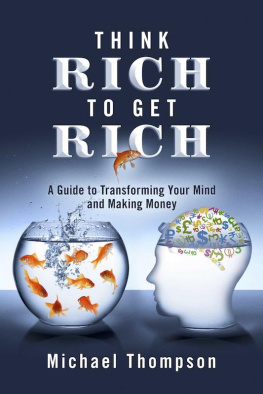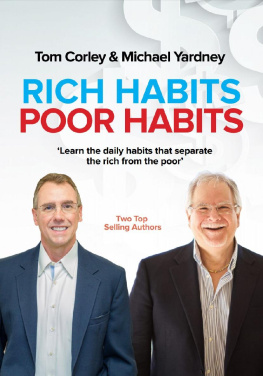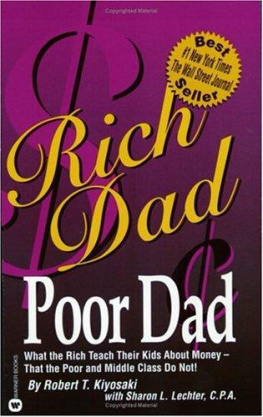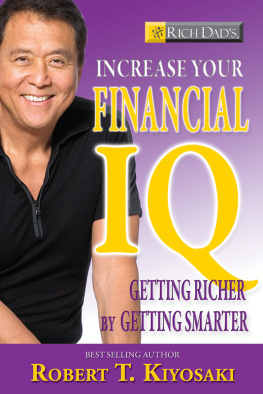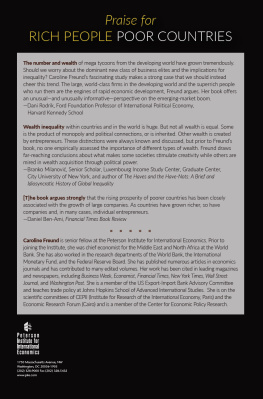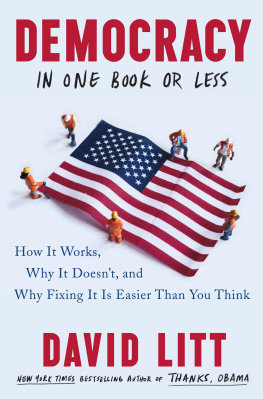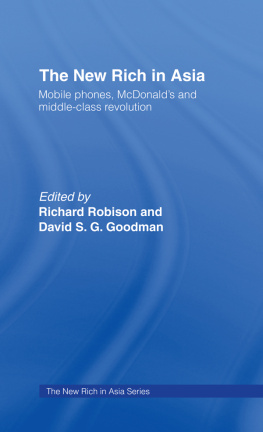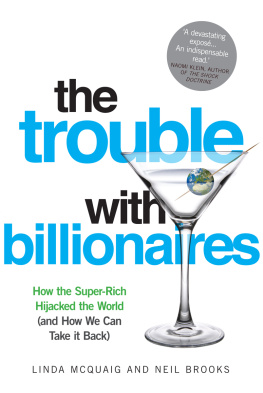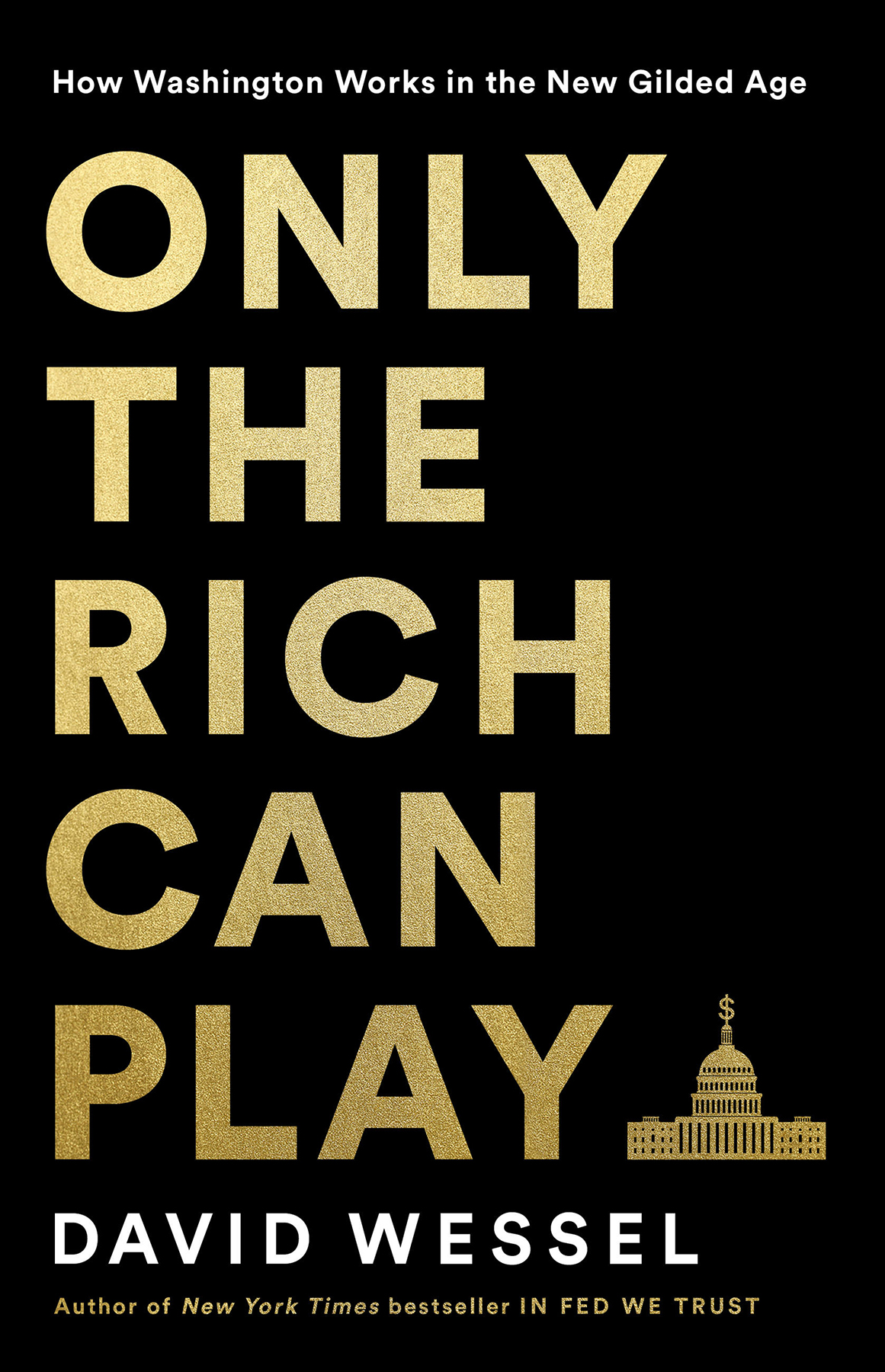
Copyright 2021 by David Wessel
Cover design by Pete Garceau
Cover copyright 2021 by Hachette Book Group, Inc.
Hachette Book Group supports the right to free expression and the value of copyright. The purpose of copyright is to encourage writers and artists to produce the creative works that enrich our culture.
The scanning, uploading, and distribution of this book without permission is a theft of the authors intellectual property. If you would like permission to use material from the book (other than for review purposes), please contact permissions@hbgusa.com. Thank you for your support of the authors rights.
PublicAffairs
Hachette Book Group
1290 Avenue of the Americas, New York, NY 10104
www.publicaffairsbooks.com
@Public_Affairs
First Edition: October 2021
Published by PublicAffairs, an imprint of Perseus Books, LLC, a subsidiary of Hachette Book Group, Inc. The PublicAffairs name and logo is a trademark of the Hachette Book Group.
The Hachette Speakers Bureau provides a wide range of authors for speaking events. To find out more, go to www.hachettespeakersbureau.com or call (866) 376-6591.
The publisher is not responsible for websites (or their content) that are not owned by the publisher.
Library of Congress Cataloging-in-Publication Data
Names: Wessel, David, author.
Title: Only the rich can play : how Washington works in the new gilded age / David Wessel.
Description: First edition. | New York : PublicAffairs, 2021. | Includes bibliographical references and index.
Identifiers: LCCN 2021005455 | ISBN 9781541757196 (hardcover) | ISBN 9781541757202 (ebook)
Subjects: LCSH: Parker, Sean, 1979- | United States. Tax Cuts and Jobs Act. | Enterprise zonesUnited States. | Business enterprisesTaxationLaw and legislationUnited States. | Rich peopleTaxationUnited States. | Tax havensUnited States. | Economic developmentCorrupt practicesUnited States.
Classification: LCC HD257.5 .W47 2021 | DDC 338.8/7dc23
LC record available at https://lccn.loc.gov/2021005455
ISBNs: 9781541757196 (hardcover); 9781541757202 (ebook)
E3-20210829-JV-NF-ORI
Praise for
ONLY THE RICH CAN PLAY
In Only the Rich Can Play, David Wessel masterfully makes policy wonkery into a riveting story. A cautionary tale of good intentions gone bad, it is a must read, from Wall Street to Main Street.
Arthur C. Brooks, professor, Harvard Kennedy School and Harvard Business School, and New York Timesbestselling author
David Wessel is a Washington treasure, and anything he writes is a must-read as far as Im concerned. In Only the Rich Can Play, Wessel marries the depth of his understanding of economics with his years of experience as a Washington reporter and his skill at storytelling. He traces the origins of the Opportunity Zone tax break from conception to birth and then shows how it actually works (or not) on the ground. This is both a great read and an important one because it shows those of us outside Washington how things really work there.
Bryan Burrough, coauthor of Barbarians at the Gate and Forget the Alamo
David Wessel has long been one of the keenest observers of the American economy. This book shows his remarkable ability to combine intellectual meat with compelling narrative. Many Silicon Valley moguls are politically clueless, but Sean Parker of Napster and Facebook managed to slip his real estate investment schemeOpportunity Zonesinto law, despite almost no support from traditional thought leaders. You should read this book if you want to understand how to get things done in Washington. You should read this book if you want to understand the most important new urban policy in a generation. You should read this book if you just want to be entertained by a terrific political yarn.
Edward Glaeser, Fred and Eleanor Glimp Professor of Economics, Harvard University
Vegas, opulent parties, wine-filled dinners. Not since the classic Showdown at Gucci Gulch has tax policy making been this much fun. But look beyond the vivid anecdotes and theres an important and underappreciated story about a program that will cost the federal treasury billions while helping a fraction of the people Congress intended. Wessel weaves together on-the-ground reporting, the best data and evidence, and deep knowledge of the policy process to show how strong moral convictions, vast wealth, and a turbocharged media presence can run up against entrenched special interests and inadequate vetting. The result, as one interviewee says, is a missed opportunity indeed.
Tracy Gordon, Urban Institute
A fascinating and entertainingalbeit at times depressing and infuriatingstory of how a major policy initiative came to be. A lesson in how social policy in America should not be made, but too often is, and an explanation of why the rich always seem to win.
Melissa Kearney, Neil Moskowitz Professor of Economics, University of Maryland
If you want to understand how the US has ended up with a tax code that on paper is progressive but in practice is so regressive that the very wealthy pay virtually no tax, Only the Rich Can Play is the place to start. In his wry style, Wessel uses the story of a tax provision dreamed up by a tech billionaire to show what happens when good intentions and arrogance collide with our tax-avoidance-industrial complex.
Paul Romer, New York University, Nobel laureate in Economics
A must-read for anyone who wants to really understand how an idea can in time become a lawwith the help of a large budget, skilled lobbying, and the support of a few key members of Congress. I thought I knew a bit about how Washington works, but I learned an enormous amount from David Wessels very carefully researched and extremely well written book.
David M. Rubenstein, cofounder and co-executive chairman of The Carlyle Group and author of How to Lead
The real story of the Trump years is one you have never heard. Beneath all the outrage and the hysteria, the same old depressing familiar was chugging along all the time: billionaires designing innovative tax breaks for other billionaires, poor people being used as a moral excuse to cut the taxes of the rich. David Wessel tells us the story in its every glittering detail, and his title might well be the catch-phrase for our era: Only the Rich Can Play.
Thomas Frank, author of Whats the Matter with Kansas? and The People, No
To Bruce, Paul, and Lois, my inspiring siblings
B LUE D UCK T AVERN IS ADJACENT TO THE LOBBY OF A P ARK Hyatt hotel, which sits alongside other luxury hotels, pricey condos, and fine dining restaurants in Washingtons West End neighborhood, between the White House and Georgetown. The tavern is the sort of place that has a nineteen-page wine list, boasts of its humidity-controlled tea cellar, had a Michelin star for a couple of years (it lost it in 2019), and draws the likes of Barack and Michelle Obama, who celebrated their seventeenth wedding anniversary there. Its open-plan kitchen allows diners a view of chefs working over a Molteni range that was custom made in France at a cost in the high five figures.
One evening in September 2013, four Washington insiders and one Silicon Valley billionaire wunderkind met for dinner at Blue Duck. The hostand starwas thirty-five-year-old Sean Parker, founder of Napster and first president of Facebook. He was in town to shop one of his many really big ideas over a long, boozy meal.
Its hard to remember because so much wine was flowing, says Jared Bernstein, a left-leaning economist (and now a member of President Bidens Council of Economic Advisers) who was at the table. Change-the-world banter was flowing freely, too. At one point, Bernstein remembers Parker telling him hed cured cancer. I said, What the fuck are you talking about? He said, I have this regime. It costs $50 million. Theres a 50 percent chance you are cured and a 50 percent chance it kills you. Thats what it was like. (Parkers spokesperson denies he said that.)


